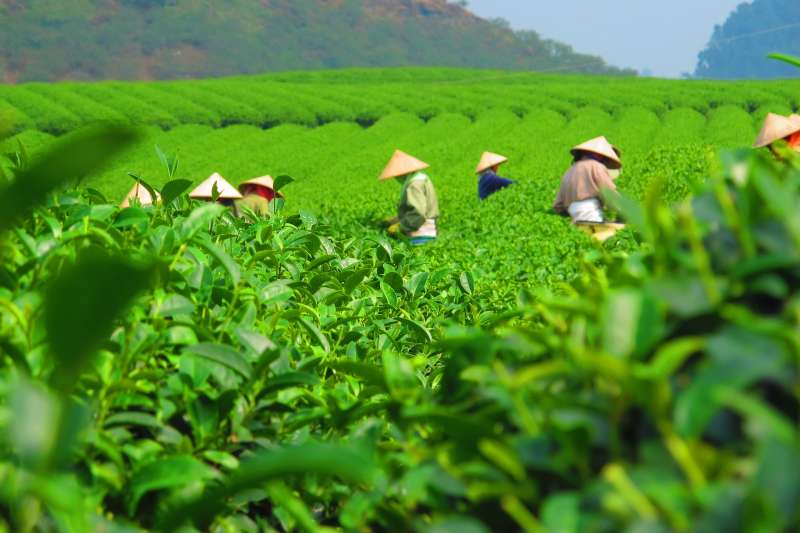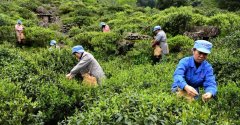Latest report: Increased warming will reduce global tea production
The latest research report released by the Christian Rescue Association, a British charity, pointed out on the 10th that if global warming intensifies, tea gardens everywhere will be severely affected, and tea production may drop sharply in the coming decades. For example, the area of land suitable for growing tea in Kenya will be reduced by more than 25% in 30 years, and the flavor of tea will also be affected.
According to a report released by the Christian Rescue Association (Christian Aid) on the 10th, if the rate of global warming continues at the current rate, the climate crisis intensifies, and extreme weather such as floods, droughts, heat waves and storms may have a serious impact on the world's tea growing areas, and tea production may decline sharply in the coming decades.
For example, by 2050, the optimal area of land suitable for growing tea in Kenya will be reduced by more than 25%, and the area of moderately ideal land suitable for growing tea will be reduced by 39%. Tea drinkers may also find that the flavor of tea has changed: the impact of flooding and increased rainfall in tea-growing areas will change the flavor of tea and may also reduce the health benefits of tea.

Tea-growing areas in India, China and Sri Lanka may also be affected, the report said. Tea gardens are the main employer in many regions, with more than 3 million people working in Africa alone. However, the tea farmers interviewed by the study said that many young people are looking for jobs outside the tea garden, and they are worried about the future.
Koskei, a 72-year-old tea farmer in the town of Kericho in western Kenya, is famous for growing tea. "my family has been serious about growing tea in the tea garden for generations, and we are proud that the tea grown here is the best in the world. However, climate change poses a real threat to us, we can no longer predict seasons, temperatures rise, rainfall is more irregular, and more often accompanied by unusual hail and longer droughts, which is not the case in the past. "
- Prev

Drought + epidemic situation Darjeeling black tea production in India continues to rise
Under the impact of the dry weather and the COVID-19 epidemic, the harvest season in India's important tea-producing areas is facing the double threat of declining production and stagnant tea production, which may cause tea prices, which have already risen for a wave, to continue to rise. The Financial Times (FT) reports
- Next

The dry elephant is difficult to solve the problem of reducing the output of spring tea by 30%. Tea farmers complain bitterly.
Drought and little rain. Zhanghu Lake, the most important tea producing area in Yunlin, has suffered heavy losses. The local village chief said that at present, tea trees are most in need of water. If there is no rain, tea trees will either die or grow up. This year's spring tea production will not only be reduced by about 30%. It may even affect
Related
- A one-day flower show brings 130 million yuan in orders! Nanhai, this Phalaenopsis exhibition is amazing
- What do the flower language and meaning of Lutheran tree mean? Precautions for planting Lutheran tree
- Encounter Chaoshan Kongfu tea, not without this cup of Phoenix single clump
- The durian market in Vietnam and Thailand is flooded. The price of imported durian has plummeted by 30-40% in a month.
- Shanghai solved the problem of local vegetable supply by planting 80,000 mu of green leafy vegetables.
- Wageningen University has become the best agricultural university in the world for the seventh time in a row.
- The strongest export season of South African grapes is full of challenges, with exports to Russia falling sharply by 21%.
- Sri Lanka is on the verge of bankruptcy, "Tea for debt" Organic Agriculture Revolution aggravates the Food crisis?
- Turning waste into earthworm manure and worm manure into organic fertilizer-A new choice for auxiliary farming
- Organic rice growers shoulder the responsibility of nurturing agricultural talents! Yinchuan Sustainable Farm with Organic Life Camp

